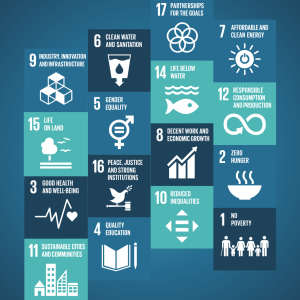Indicators in this domain assess the extent to which migrants have the same status as citizens in terms of access to basic social services such as health, education, and social security. It also describes the rights of migrants to family reunification, to work, and to residency and citizenship. The ratification of the main international conventions is also included within this domain.
Indicators in this category look at the extent to which migrants have access to certain social services such as health, education and social security. They also examine measures to ensure integration and access to work.
Indicators in this domain assess countries’ institutional, legal, and regulatory frameworks related to migration policies. Domain 2 also reviews the existence of national migration strategies that are in-line with development, as well as institutional transparency and coherence in relation to migration management. This domain also investigates the extent to which governments collect and use migration data.
Indicators in this category assess the institutional frameworks of cities for migration. This area also examines the existence of migration strategies consistent with development objectives, as well as institutional transparency and coherence in migration management.
This domain focuses on countries’ efforts to cooperate on migration-related issues with other states and with relevant non-governmental actors, including civil society organizations and the private sector. Cooperation can lead to improvements in governance by aligning and raising standards, increasing dialogue and providing structures to overcome challenges.
Indicators in this category focus on cities’ efforts to cooperate on migration issues with the national government as well as other cities and relevant non-governmental actors, including civil society organizations and the private sector.
This domain includes indicators on countries’ policies for managing the socioeconomic well-being of migrants, through aspects such as the recognition of migrants’ educational and professional qualifications, provisions regulating student migration and the existence of bilateral labour agreements between countries. Indicators equally focus on policies and strategies related to diaspora engagement and migrant remittances.
Indicators in this category assess cities’ initiatives in terms of international student mobility, access to the labour market and decent working conditions for migrant workers. Aspects related to diaspora engagement and migrant remittances are also included in this domain.
This domain studies the type and level of preparedness of countries when they are faced with mobility dimensions of crises, linked to either disasters, the environment and/or conflict. The questions are used to identify the processes in place for nationals and non-nationals both during and after disasters, including whether humanitarian assistance is equally available to migrants as it is to citizens.
Indicators in this category examine the type and level of readiness of cities to deal with aspects of mobility crises. The questions focus on the processes in place for citizens and non-citizens both during and after disasters, especially if humanitarian assistance is available for migrants and citizens.
This domain analyses countries’ approach to migration management in terms of border control and enforcement policies, admission criteria for migrants, preparedness and resilience in the case of significant and unexpected migration flows, as well as the fight against trafficking in human beings and smuggling of migrants. It also assesses efforts and incentives to help integrate returning citizens.
Indicators in this category look at the cities’ approaches to migrant safety as well as return and reintegration policies and the fight against trafficking in persons.
This country Profile describes examples of well-developed areas of the Commonwealth of Dominica’s governance structures and areas with potential for further development, as evaluated through the six domains of the Migration Governance Indicators (MGI). These address migrants’ rights, a “whole-of-government” approach, partnerships, socioeconomic well-being of migrants, the mobility dimensions of crises, and safe and orderly migration.
Click the icons on the wheel to explore the key findings.
The Migration Governance Indicators (MGI) initiative is a policy-benchmarking programme led by the International Organization for Migration (IOM) and implemented with research and analysis from the Economist Impact. Funding is provided by IOM Member States.
Migration Governance: examples of well-developed areas
- All migrants in Dominica, regardless of migration status, can access Government-funded health services under the same conditions as nationals.
- Regular migrants and CARICOM nationals have equitable access to social protection in Dominica, facilitated by the 1996 CARICOM agreement on social security.
- Permanent residents, residents on temporary permits and residents on family reunion permits have equal access to employment as nationals, including in the public sector.
Areas with potential for further development
- Dominica does not have a policy or strategy to combat hate crimes, violence, xenophobia or discrimination against migrants.
- Dominicans residing in another country are able to vote in national elections only under specific conditions, as there are no provisions for postal or electronic voting from another country.
Migration Governance: examples of well-developed areas
- The National Resilience Development Strategy: Dominica 2030 (2020) designates the Ministry of National Security and Legal Affairs to oversee immigration and related matters nationally.
- The Immigration and Passport Act (No. 5 of 1941, amended in 2017) is Dominica's primary legislation governing immigration.
- The Diaspora Relations Office, established in 2015, coordinates engagement with Dominica's diaspora, fostering connections through the Diaspora Advisory Group, and organizing annual Diaspora Forums.
Areas with potential for further development
- There is no interministerial coordination mechanisms for migration issues at the national level.
- Dominica has no national strategies on migration set out in a programme document or manifesto.
- Dominica does not regularly collect or publish migration data.
Migration Governance: examples of well-developed areas
- Dominica participates in several regional consultative processes, including the Organization of Eastern Caribbean States (1981), the Caribbean Community (19680, and the Group of Latin American and Caribbean States (1978).
- The Government formally engages the diaspora and expatriate communities in agenda-setting and implementing migration-related policies. For example, during the development of the national Diaspora Policy (under review as of February 2024), webinars were conducted to consult with diaspora members.
- Dominica has several agreements on migration: a 2015 memorandums of understanding (MoU) with the European Union enabling short-stay visa waiver, allowing 90 days within a 180-day period, and a 2006 bilateral agreement with France on readmission, which facilitates streamlined return procedures. Additionally, there is a 2022 agreement with China that entails mutual visa exemption.
Areas with potential for further development
- The Dominican Government consults its civil society organizations, the private sector, and social partners on migration issues on an ad hoc basis
Migration Governance: examples of well-developed areas
- The National Accreditation Board (NAB), established under Act No. 13 of 2006, serves as the primary body responsible for accrediting and recognizing post-secondary and tertiary educational and training institutions, programmes, and awards. Additionally, Dominica participates in the CARICOM Qualifications Framework.
Areas with potential for further development
- Limited data is available for monitoring the labour market demand and supply for immigrants. The Central Statistics Office (CSO) does not collect data on the labour market disaggregated by migratory status or gender.
- Dominica does not promote the creation of formal remittance schemes.
- There are no laws specifically promoting the ethical recruitment of migrant workers in Dominica.
- The admission process in Dominica does not consider the skills and capabilities of migrant workers; however, the Caribbean Community Skilled Nationals Act (1995) seeks to ease barriers for skilled individuals from qualifying CARICOM countries.
Migration Governance: examples of well-developed areas
- The Emergency Powers (Disaster) Act (No. 20 of 1987) includes provisions for establishing the National Emergency Planning Organization (NEPO) as the agency responsible for disaster management.
- The National Disaster Plan (NDP), formulated in 2001, serves as a guiding document for disaster management and preparedness at the national level. The NDP mandates NEPO to establish, operate, and maintain a National Emergency Operations Centre.
- The Climate Resilience and Recovery Plan 2020–2030 (2020) and the national Resettlement Strategy (2015) both include specific provisions for preventing and addressing the displacement impacts of disasters.
- Communication systems for receiving information about the development of disasters and access to aid, and to allow the public to communicate their needs to the authorities, take into account the specific vulnerabilities that migrants face.
Areas with potential for further development
- Developing an emergency management framework and implementing specific measures to aid migrants during crises is identified as an area for further development.
- Dominica lacks a comprehensive strategy to address migration linked to environmental degradation and climate change.
Migration Governance: examples of well-developed areas
- The Transnational Organized Crime (Prevention and Control) Act (No. 13 of 2013), the Sexual Offences Act (No. 1 of 1998, amended in 2017), and the Constitution (1978) outline strategies to combat human trafficking.
- Dominica utilizes a mixed paper-based and online system for pre-arrival visa applications. Visitor visa information is available online, and application forms for all types of visas are accessible on government ministry websites.
Areas with potential for further development
- There is no dedicated body specifically responsible for integrated border control and security in Dominica.
- There is no system in place to automatically monitor visa overstays in Dominica, as the existing border management system does not consistently capture such information.
- The country has ad hoc training programmes for border personnel, though not necessarily in migration related topics.
- There is no formal government programme or dedicated policy that focuses on attracting nationals who have migrated or facilitating the reintegration of returning nationals.
2024 February




